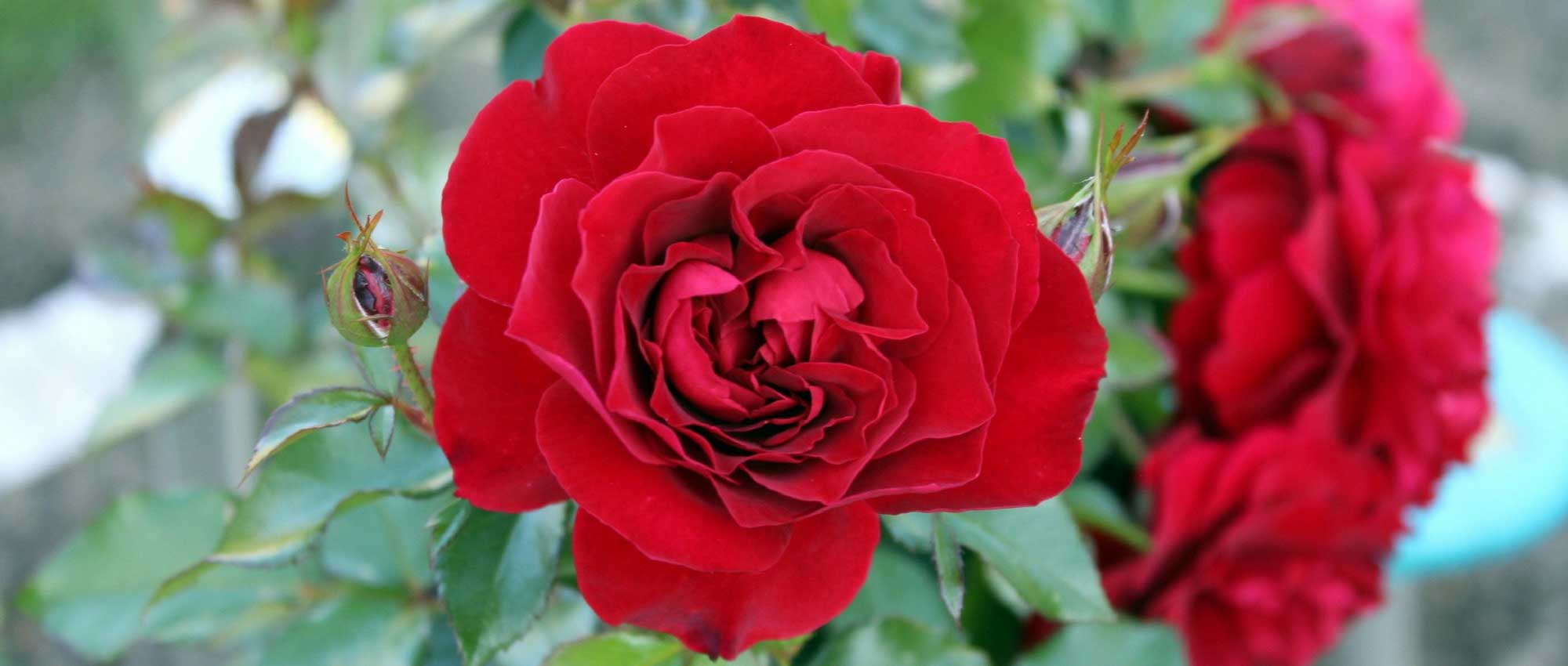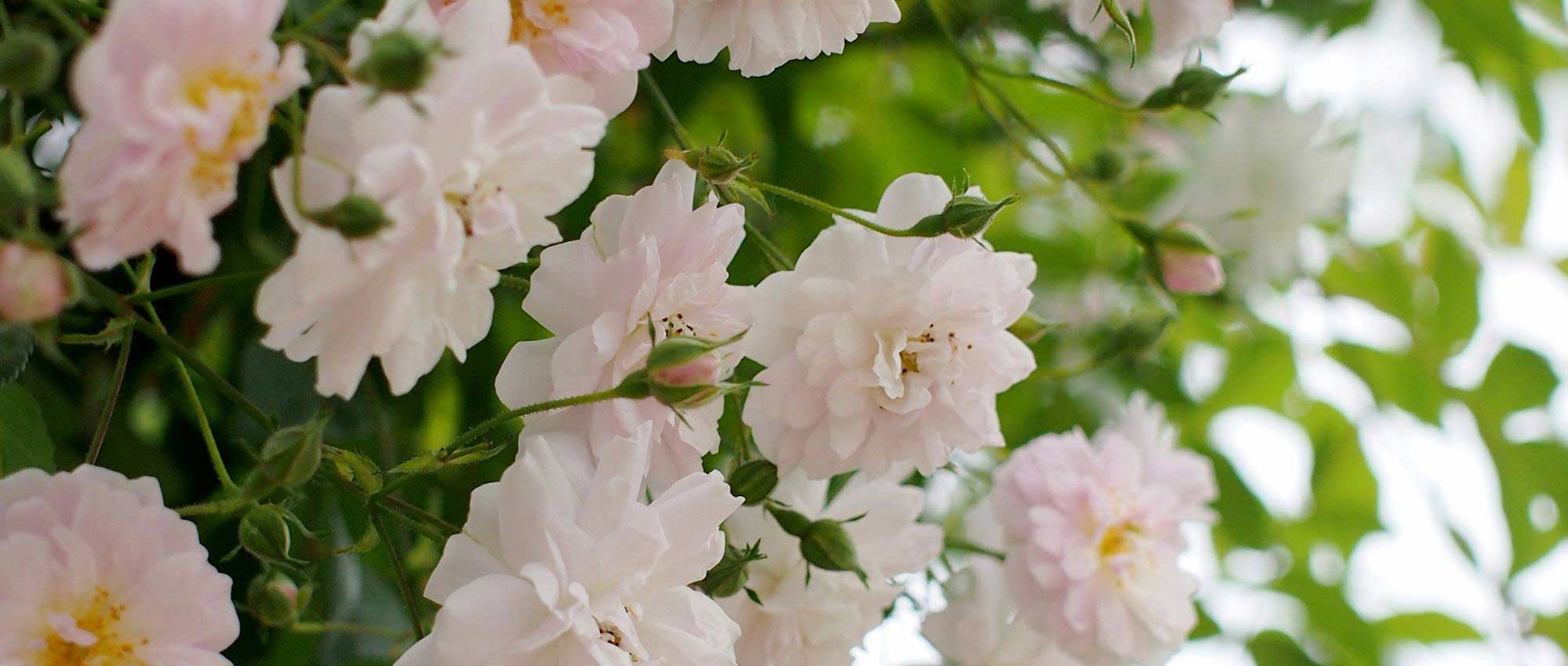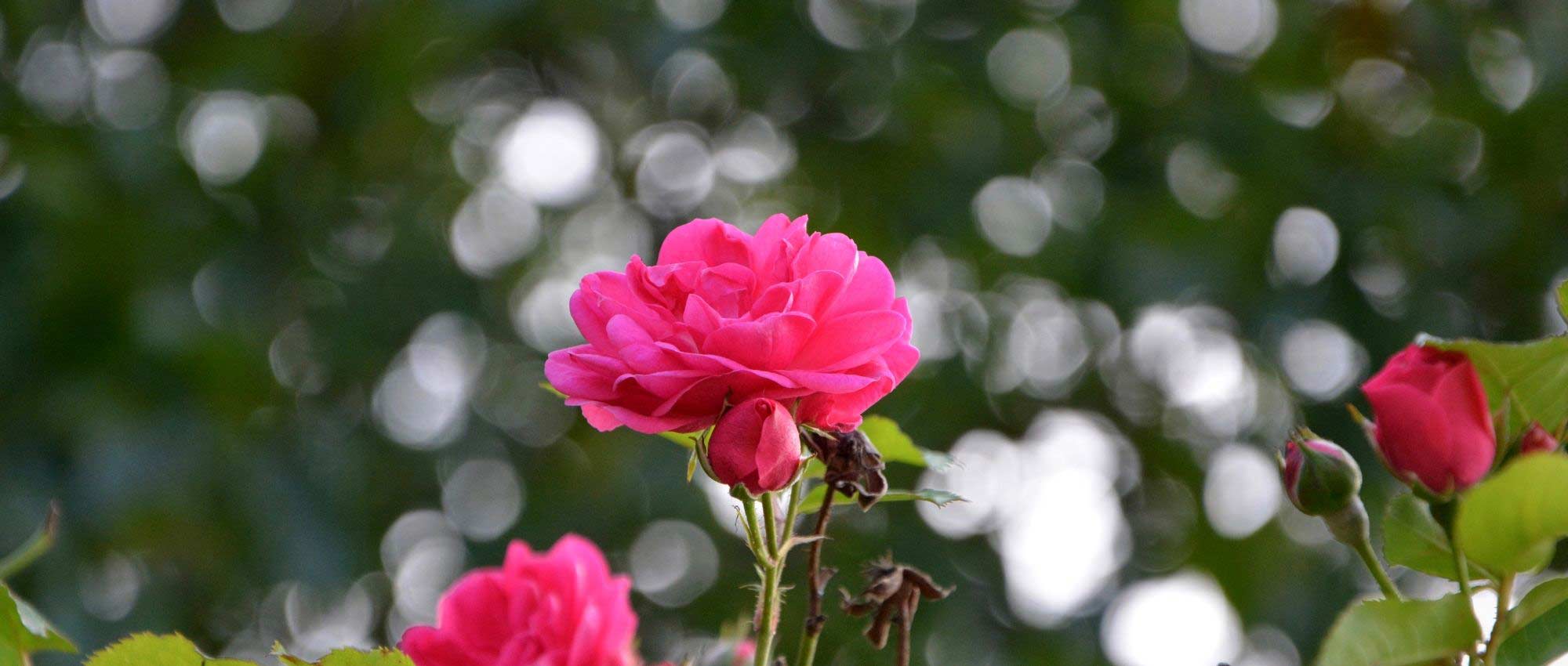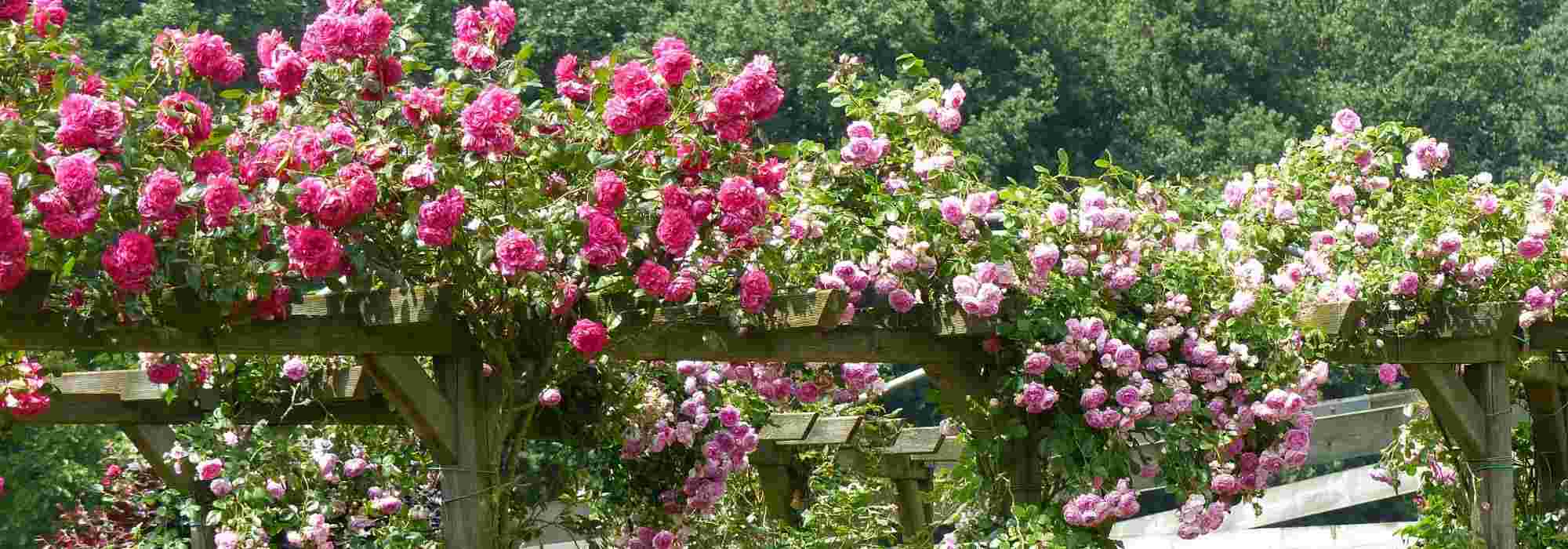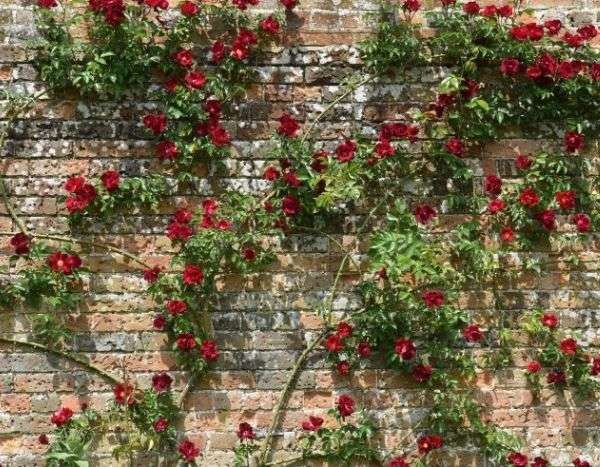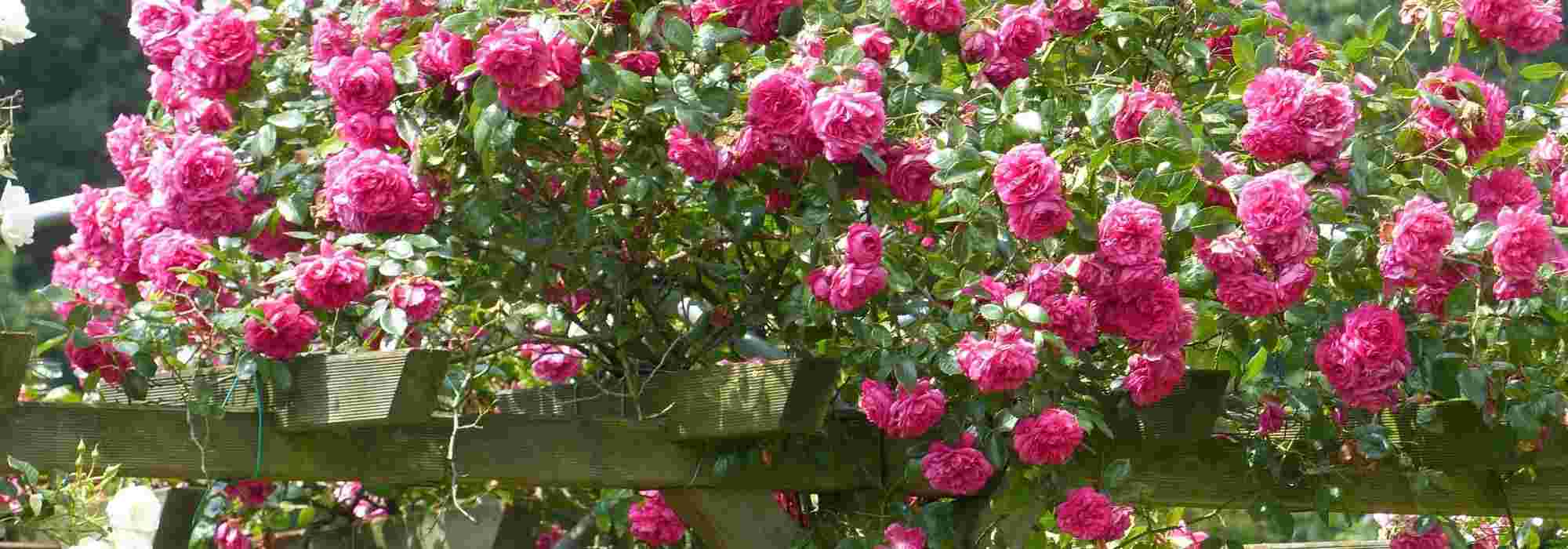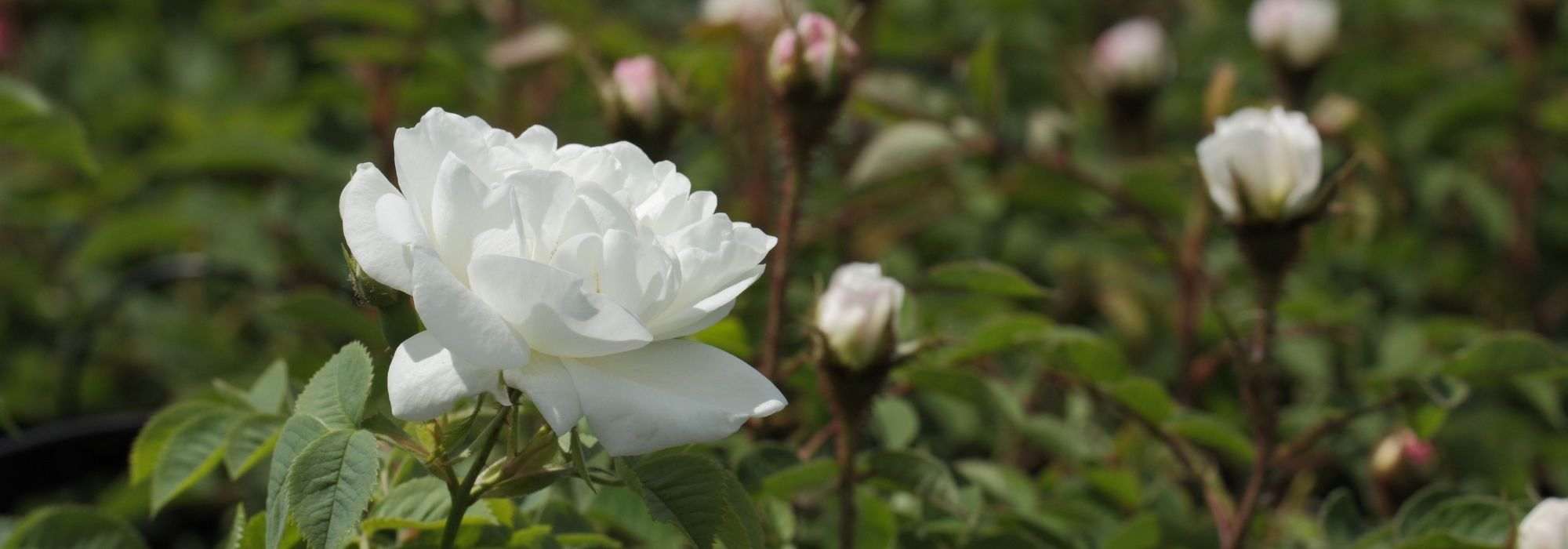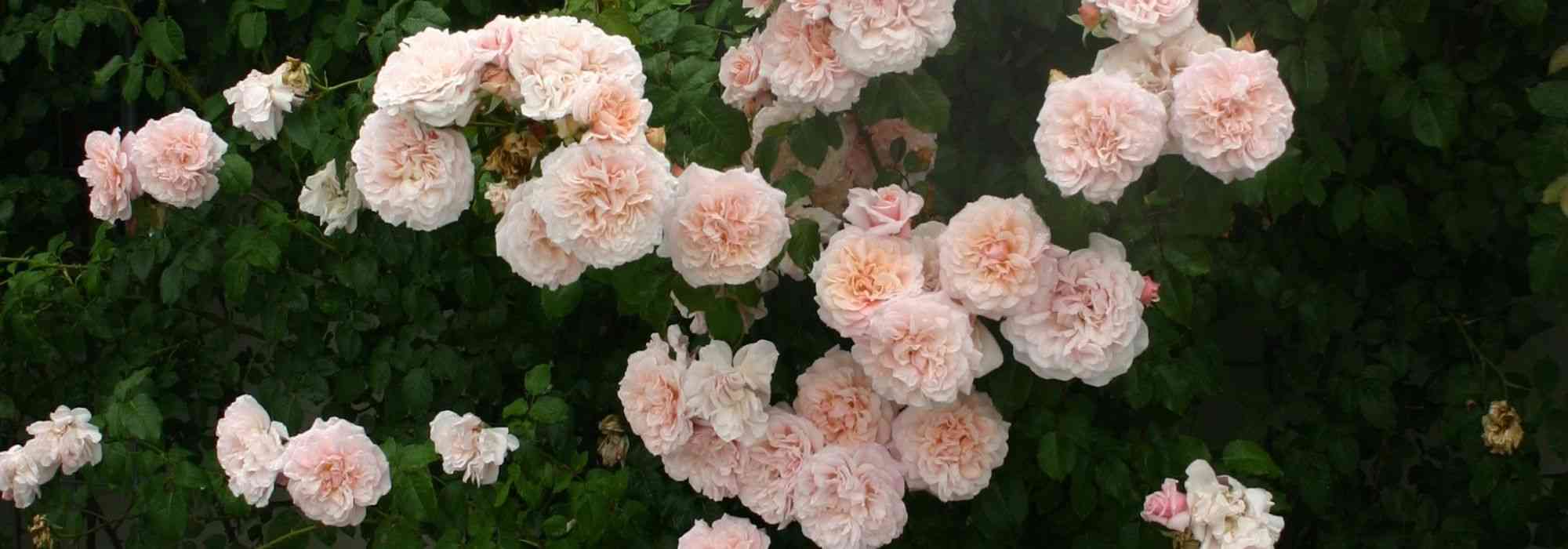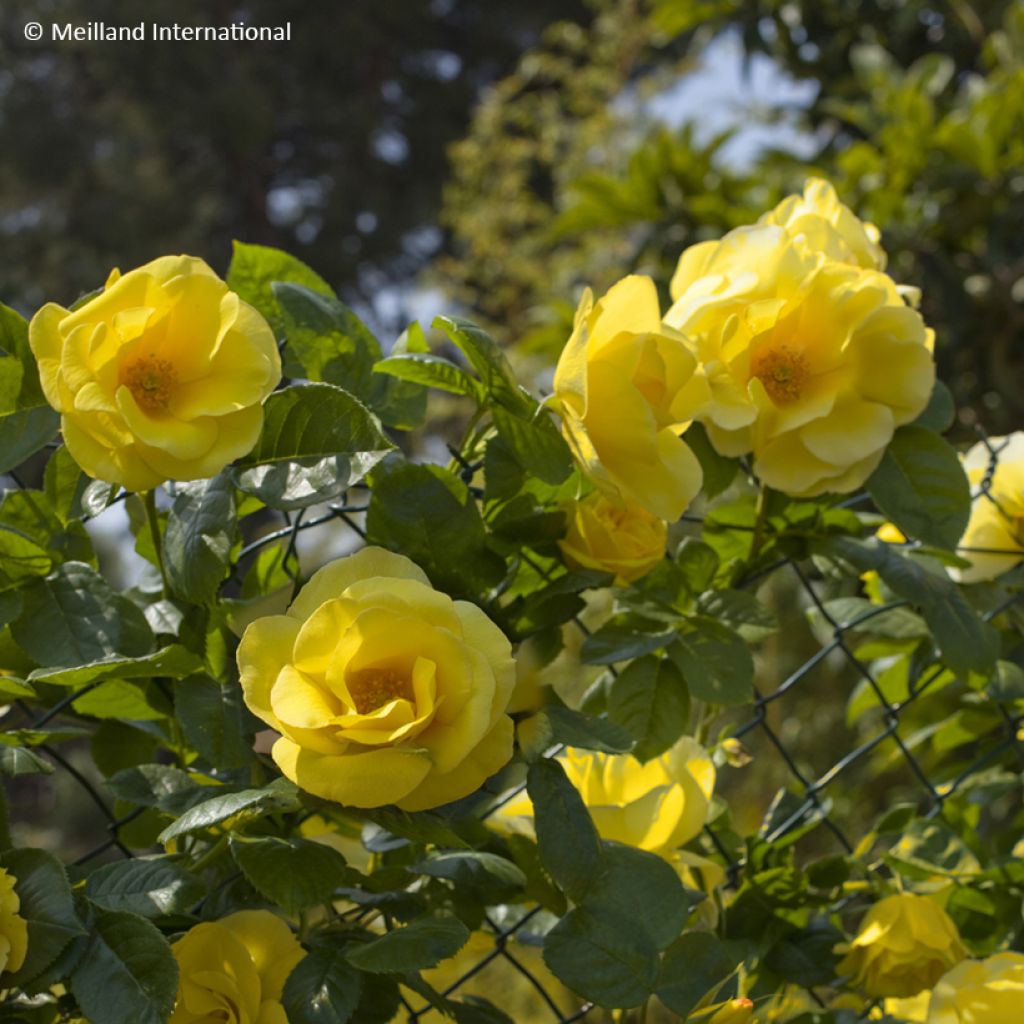

Rosa Happiness - Climbing Rose
Rosa Happiness - Climbing Rose
Rosa 'Meilaclost' HAPPINESS®
Climbing Rose
Thank you to the team (for order preparation and shipping), the rose bush I received seems healthy. Planted near an arch and the "Albéric Barbier" rose bush, I'm now patiently waiting for it to take root...(or not?).
Thierry, 09/07/2025
Special offer!
Receive a €20 voucher for any order over €90 (excluding delivery costs, credit notes, and plastic-free options)!
1- Add your favorite plants to your cart.
2- Once you have reached €90, confirm your order (you can even choose the delivery date!).
3- As soon as your order is shipped, you will receive an email containing your voucher code, valid for 3 months (90 days).
Your voucher is unique and can only be used once, for any order with a minimum value of €20, excluding delivery costs.
Can be combined with other current offers, non-divisible and non-refundable.
Home or relay delivery (depending on size and destination)
Schedule delivery date,
and select date in basket
This plant carries a 6 months recovery warranty
More information
We guarantee the quality of our plants for a full growing cycle, and will replace at our expense any plant that fails to recover under normal climatic and planting conditions.

Description
The Happiness® 'Meilaclost' Climbing Rose brings incomparable light to the garden with its bright, pale yellow roses which gradually fade to a creamy yellow. Abundant and robust, it offers continuous and abundant flowering from May until the first frosts, elegantly adorning walls, pergolas, and columns. Its vigorous growth and dense, dark green, disease-resistant foliage make it an ideal choice for brilliantly bringing structure to areas. Its radiant personality makes it a must-have for elegant and refined gardens.
The Happiness® 'Meilaclost' Climbing Rose belongs to the Rosaceae family. It is a creation by Meilland, part of the Large-Flowered Climbers group, and is marketed abroad under the name Smiley Face Climbing. This variety was awarded a Silver Medal at the Monza competition (Italy) in 2010, a testament to its ornamental qualities and resilience. It develops rapid and generous growth, reaching over 2 metres in height and spreading across an area of 6 to 10 m². Its sarmentous habit enables it to effectively bring structure to vertical spaces, whether trained against a wall or spiralled around a pillar. The flowers of the 'Meilaclost' climbing rose emerge in clusters of 6 to 15 flowers. Each rose blooms quickly from pointed buds, revealing an almost flat corolla measuring 10 to 11 cm in diameter. Composed of around fifteen slightly undulate petals, they open to reveal a golden-yellow stamen centre that catches the eye. The luminous yellow hue of the petals gradually lightens to a creamy yellow at maturity, offering a subtle gradient over time. Highly floriferous and continuously flowering, this rose blooms in successive waves from May-June until the first frosts with an exceptionally abundant first flush and excellent repeat flowering. Its dark green foliage creates a striking contrast and is notably disease-resistant. Its stems should be carefully trained on a trellis, wire mesh, or arch to maximise flowering. When tied horizontally, the stems encourage the growth of new flowering branches, forming a dense and spectacular mass of flowers.
Thanks to its flexible habit and luminous flowering, the Happiness® 'Meilaclost' Climbing Rose gracefully brings structure to vertical spaces, adorning them with a golden abundance from spring until the frosts. It lends itself to multiple displays—trained against a sunny wall, guided along a pergola, or shaped into a floral column to highlight a pathway or seating area. Its dense foliage will offer an elegant contrast with summer-flowering clematis such as a Clematis viticella 'Etoile Violette' whose purple flowers will intensify its radiant yellow. For a subtle and sophisticated pairing, it will blend beautifully with an 'Iceberg' rose whose white clusters will add freshness and lightness. At its base, a 'Hidcote' lavender will bring structure to the ensemble. Grown in a bed combining these complementary blooms, this rose will becomes a focal point, unifying volumes and enhancing the garden's light.
Rosa Happiness - Climbing Rose in pictures


Plant habit
Flowering
Foliage
Botanical data
Rosa
'Meilaclost' HAPPINESS®
Rosaceae
Climbing Rose
Rosa 'Meilaclost' Smiley Face Climbing
Cultivar or hybrid
Planting and care
Plant your Rosa 'Happiness Meilaclost' in a sunny position. Roses are tolerant but dislike excessive lime and thrive best in fertile, well-drained soil. They will adapt to any garden as long as the ground is well-prepared and sufficiently rich. To plant your rose, work the soil by breaking it up finely and adding an amendment such as dried blood or dehydrated horn at the bottom of the planting hole. Water generously after planting to eliminate any air pockets. Water regularly for a few weeks to encourage root establishment.
In late winter, prune the oldest stems back to 3-5 buds above the ground (at the lowest point), choosing outward-facing buds for a more elegant habit. Use this pruning opportunity to remove any dead wood and unsightly branches. Prune at a slant above a bud. As flowering progresses, deadhead to stimulate the growth of new buds.
If planting a climbing or rambling rose near a living tree, the rose's root system will compete with the well-established tree roots. To control watering, here’s a tip: plant the rose in a large container with the bottom removed, placed at the base of the tree. The tree roots won’t penetrate the container for at least a year. Remove the container after one year, for example by cutting one side, without disturbing the rose's root system. The rose will have had time to develop a deep root system and will be more resilient.
Roses often develop spots or look unattractive by late summer, but this does not affect their growth. These spots are not harmful to the rose—it's a natural phenomenon. Follow our advice to address this issue and read our article: Help! My Roses Have Spots
Planting period
Intended location
Care
Planting & care advice
-
, onOrder confirmed
Reply from on Promesse de fleurs
Haven't found what you were looking for?
Hardiness is the lowest winter temperature a plant can endure without suffering serious damage or even dying. However, hardiness is affected by location (a sheltered area, such as a patio), protection (winter cover) and soil type (hardiness is improved by well-drained soil).

Photo Sharing Terms & Conditions
In order to encourage gardeners to interact and share their experiences, Promesse de fleurs offers various media enabling content to be uploaded onto its Site - in particular via the ‘Photo sharing’ module.
The User agrees to refrain from:
- Posting any content that is illegal, prejudicial, insulting, racist, inciteful to hatred, revisionist, contrary to public decency, that infringes on privacy or on the privacy rights of third parties, in particular the publicity rights of persons and goods, intellectual property rights, or the right to privacy.
- Submitting content on behalf of a third party;
- Impersonate the identity of a third party and/or publish any personal information about a third party;
In general, the User undertakes to refrain from any unethical behaviour.
All Content (in particular text, comments, files, images, photos, videos, creative works, etc.), which may be subject to property or intellectual property rights, image or other private rights, shall remain the property of the User, subject to the limited rights granted by the terms of the licence granted by Promesse de fleurs as stated below. Users are at liberty to publish or not to publish such Content on the Site, notably via the ‘Photo Sharing’ facility, and accept that this Content shall be made public and freely accessible, notably on the Internet.
Users further acknowledge, undertake to have ,and guarantee that they hold all necessary rights and permissions to publish such material on the Site, in particular with regard to the legislation in force pertaining to any privacy, property, intellectual property, image, or contractual rights, or rights of any other nature. By publishing such Content on the Site, Users acknowledge accepting full liability as publishers of the Content within the meaning of the law, and grant Promesse de fleurs, free of charge, an inclusive, worldwide licence for the said Content for the entire duration of its publication, including all reproduction, representation, up/downloading, displaying, performing, transmission, and storage rights.
Users also grant permission for their name to be linked to the Content and accept that this link may not always be made available.
By engaging in posting material, Users consent to their Content becoming automatically accessible on the Internet, in particular on other sites and/or blogs and/or web pages of the Promesse de fleurs site, including in particular social pages and the Promesse de fleurs catalogue.
Users may secure the removal of entrusted content free of charge by issuing a simple request via our contact form.
The flowering period indicated on our website applies to countries and regions located in USDA zone 8 (France, the United Kingdom, Ireland, the Netherlands, etc.)
It will vary according to where you live:
- In zones 9 to 10 (Italy, Spain, Greece, etc.), flowering will occur about 2 to 4 weeks earlier.
- In zones 6 to 7 (Germany, Poland, Slovenia, and lower mountainous regions), flowering will be delayed by 2 to 3 weeks.
- In zone 5 (Central Europe, Scandinavia), blooming will be delayed by 3 to 5 weeks.
In temperate climates, pruning of spring-flowering shrubs (forsythia, spireas, etc.) should be done just after flowering.
Pruning of summer-flowering shrubs (Indian Lilac, Perovskia, etc.) can be done in winter or spring.
In cold regions as well as with frost-sensitive plants, avoid pruning too early when severe frosts may still occur.
The planting period indicated on our website applies to countries and regions located in USDA zone 8 (France, United Kingdom, Ireland, Netherlands).
It will vary according to where you live:
- In Mediterranean zones (Marseille, Madrid, Milan, etc.), autumn and winter are the best planting periods.
- In continental zones (Strasbourg, Munich, Vienna, etc.), delay planting by 2 to 3 weeks in spring and bring it forward by 2 to 4 weeks in autumn.
- In mountainous regions (the Alps, Pyrenees, Carpathians, etc.), it is best to plant in late spring (May-June) or late summer (August-September).
The harvesting period indicated on our website applies to countries and regions in USDA zone 8 (France, England, Ireland, the Netherlands).
In colder areas (Scandinavia, Poland, Austria...) fruit and vegetable harvests are likely to be delayed by 3-4 weeks.
In warmer areas (Italy, Spain, Greece, etc.), harvesting will probably take place earlier, depending on weather conditions.
The sowing periods indicated on our website apply to countries and regions within USDA Zone 8 (France, UK, Ireland, Netherlands).
In colder areas (Scandinavia, Poland, Austria...), delay any outdoor sowing by 3-4 weeks, or sow under glass.
In warmer climes (Italy, Spain, Greece, etc.), bring outdoor sowing forward by a few weeks.






























